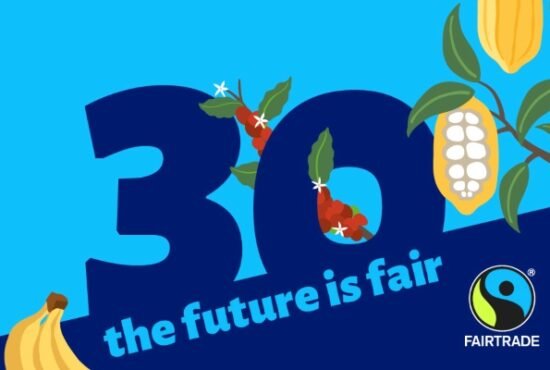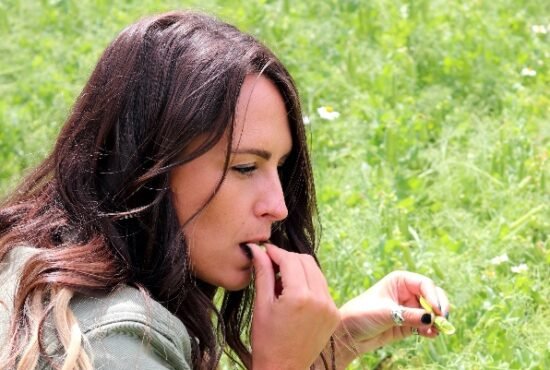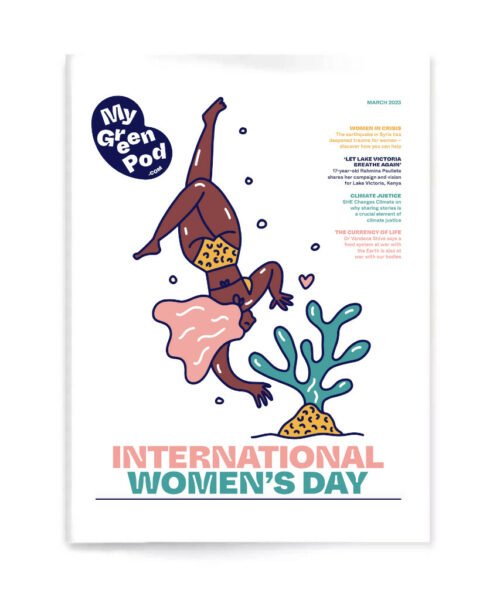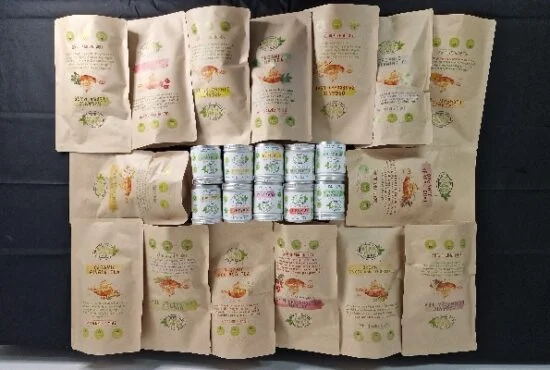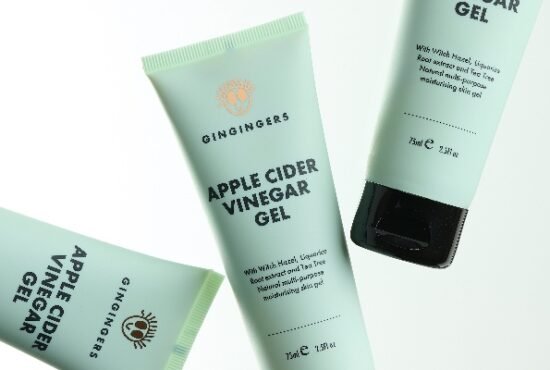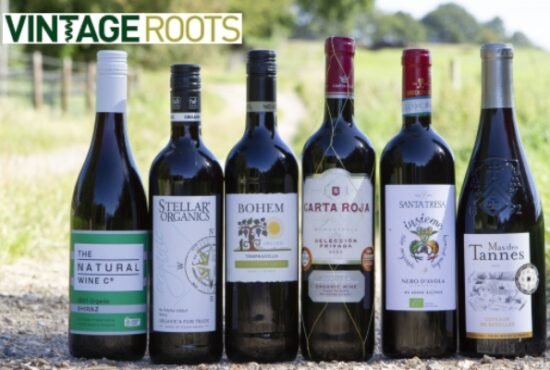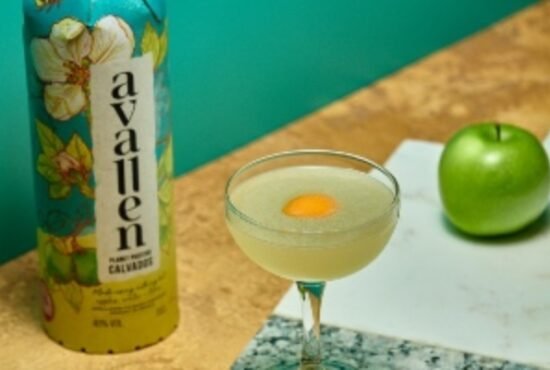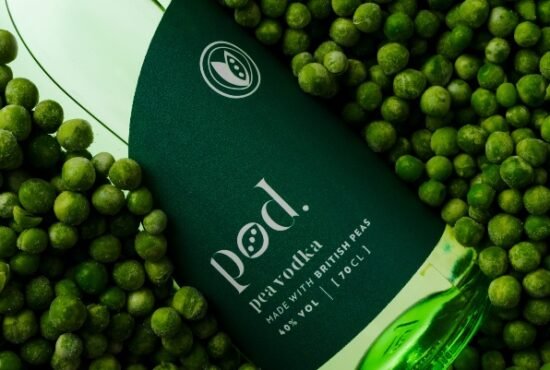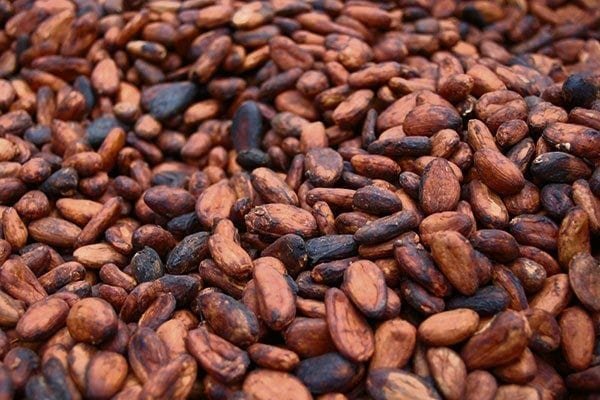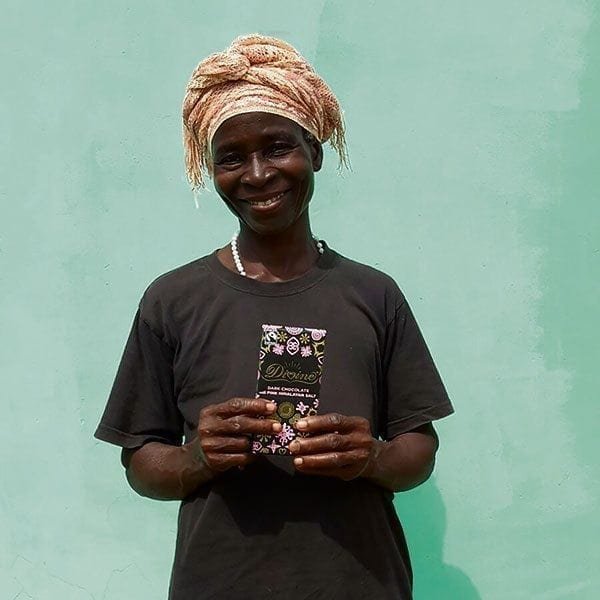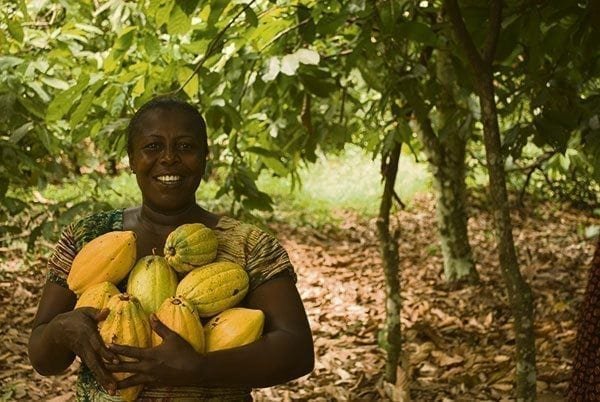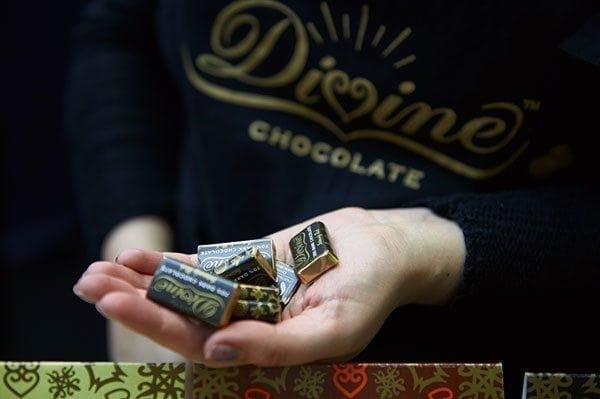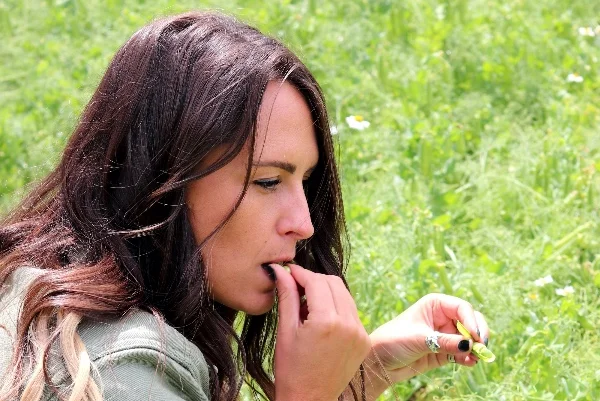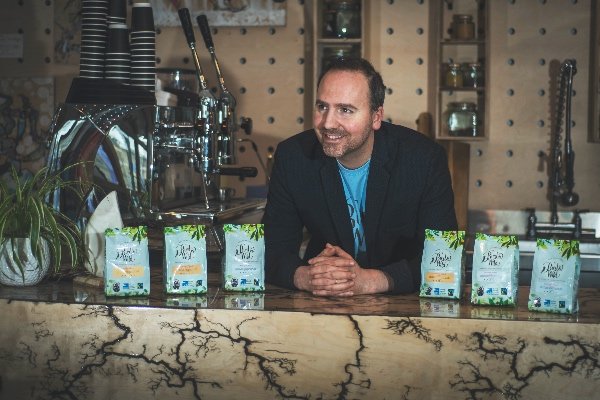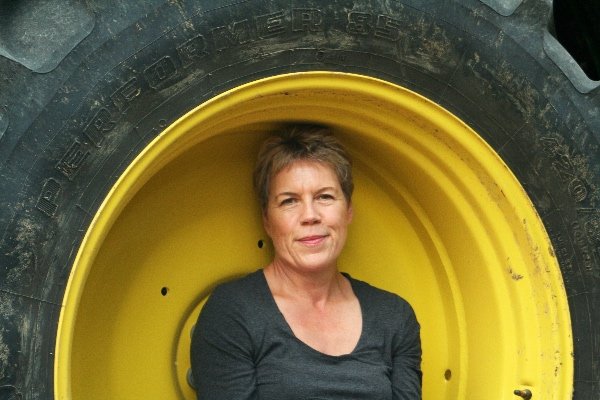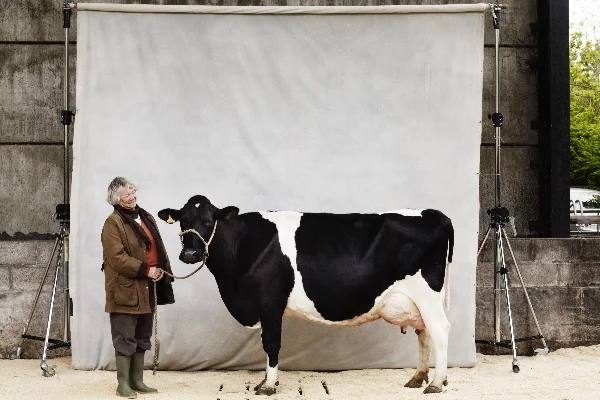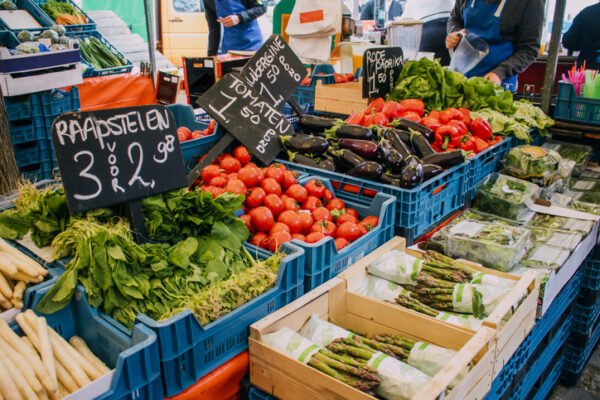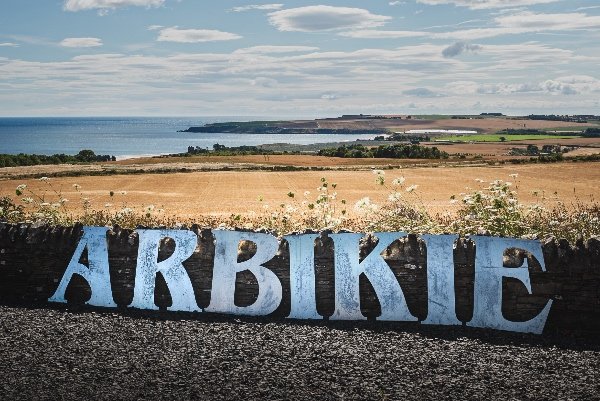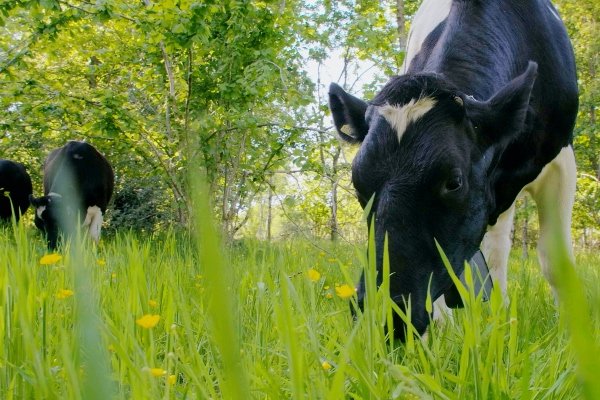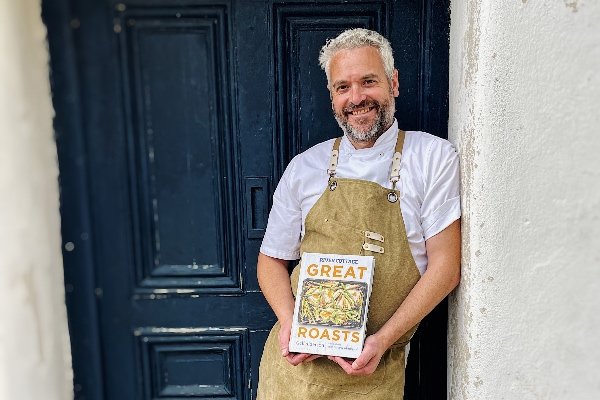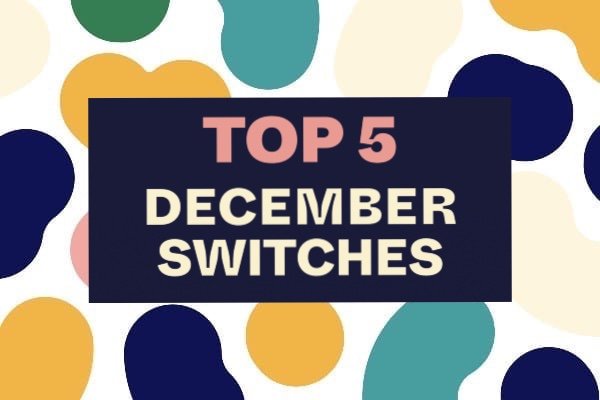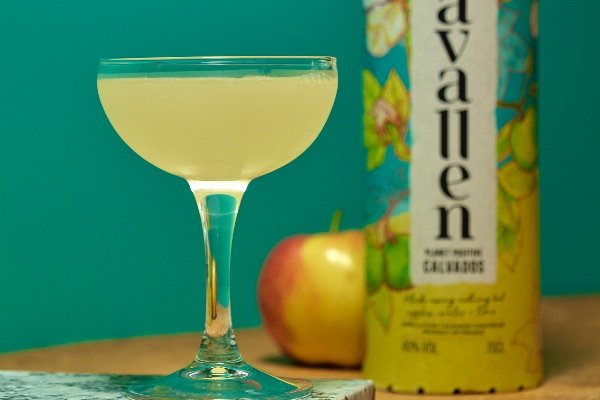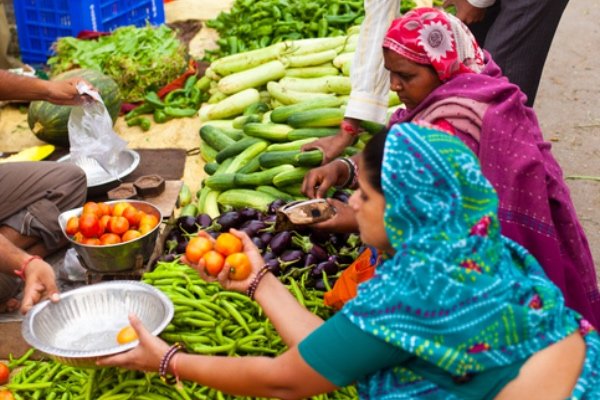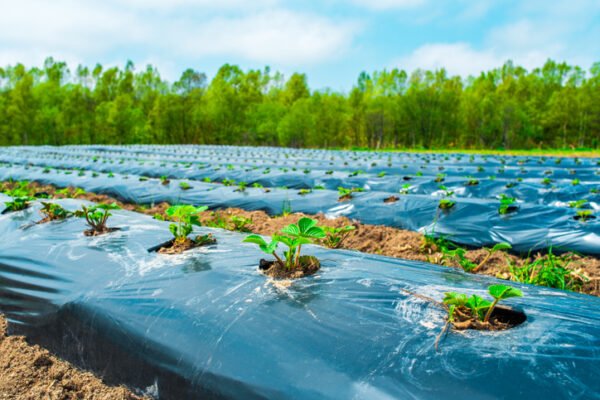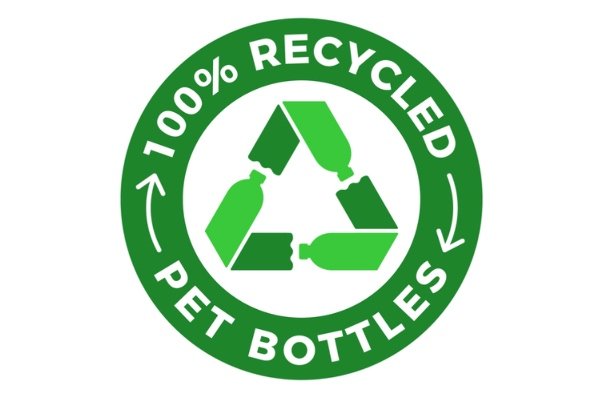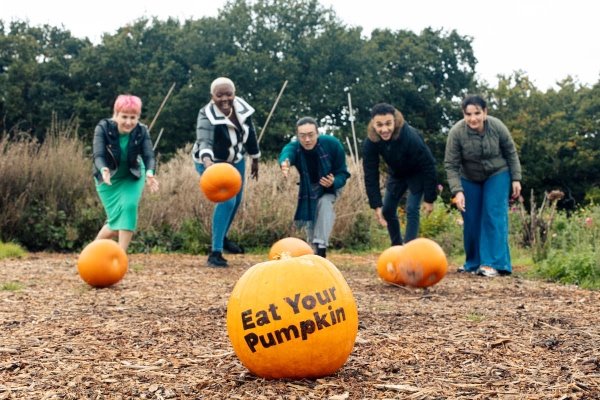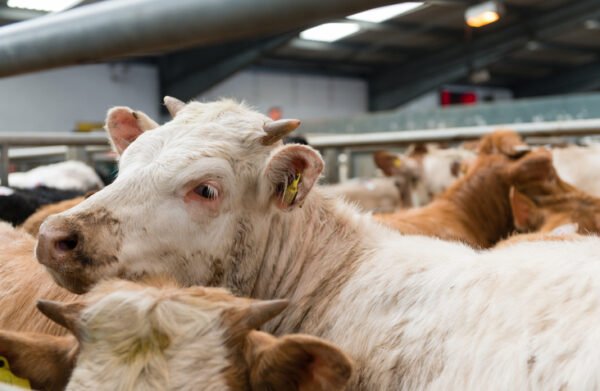The Department for International Development pulled out all the stops to guarantee Day’s business loan, and NatWest offered sympathetic banking facilities.
Divine Fairtrade milk chocolate, made from Kuapa’s best fairly traded cocoa beans, was launched in October 1998, using a new business model that meant the co-operative of Ghanaian cocoa farmers owned a share of the company that made the chocolate.
This first ever farmer-owned Fairtrade chocolate bar aimed at the mass market was on UK supermarket shelves by Christmas that year.
The Divine bar’s success is underlined by the fact that Day Chocolate changed its name to Divine Chocolate Ltd on 01 January 2007.
The farmers’ ownership stake was a first in Fairtrade chocolate; it means Kuapa Kokoo has a meaningful input into decisions about how Divine is produced and sold. Two representatives from Kuapa Kokoo are directors on the company’s board and a quarter of the board meetings are held in Ghana.
In 2006 The Body Shop decided to donate its shares in the company to Kuapa Kokoo members and in 2015 Divine merged its UK and USA businesses. As a result, the farmers’ co-operative is now the largest shareholder in a much bigger company, with a 44% stake in a profitable business with a £12m turnover.
TOUGH COMPETITION
In a ferociously competitive chocolate market worth almost £4bn in the UK alone, being the new bar on the block can be a daunting prospect. There are hundreds of chocolate brands available in the UK, and the biggest companies spend up to 10% of their profit margins – tens of millions of pounds – in their fight to retain their brands’ positions in the Chocolate Top Ten.
But these challenges bring potential for huge success.The UK has one of the highest per capita levels of chocolate consumption in the world; capturing even a small portion of this market would allow Divine to deliver real benefits to cocoa farmers.
In the summer of 2007, having paid off original debts and loans, Divine Chocolate’s chairman took great pride in handing over the first dividend cheque to the co-operative.
‘A LOVELY IDEA’
During an interviewed in early 1993, a commercial affairs representative of the Government of Ghana said the goal to create a new chain between farmers and the export market was ‘Just a lovely idea. But it cannot be done.’
Today Kuapa Kokoo proudly produces up to 5% of Ghana’s cocoa – which can be up to 640,000 sacks of cocoa a year. The farmers have grown the co-op’s membership and worked on internal systems to better manage and track it.
The Fairtrade premium has been invested in farming communities and farming skills, and improving standards of living by addressing water, health, education and sanitation issues.
Kuapa Kokoo has also taken a lead on addressing child labour, and is piloting a number of environmental initiatives aimed at improving productivity and adapting to climate change.
The co-operative’s incredible success is the result of a farmer-led response to liberalisation. It goes to show that great – and unexpected – things can be achieved when old systems are given a good shake up.
Click here to find out more about Divine Chocolate and Kuapa Kokoo.
 Play Video about This Rock Might Just Save The World
Play Video about This Rock Might Just Save The World Play Video about Play 2 hours of rock
Play Video about Play 2 hours of rock Play Video about Play 2 hours of brook
Play Video about Play 2 hours of brook Play Video about Play 2 hours of sheep
Play Video about Play 2 hours of sheep
